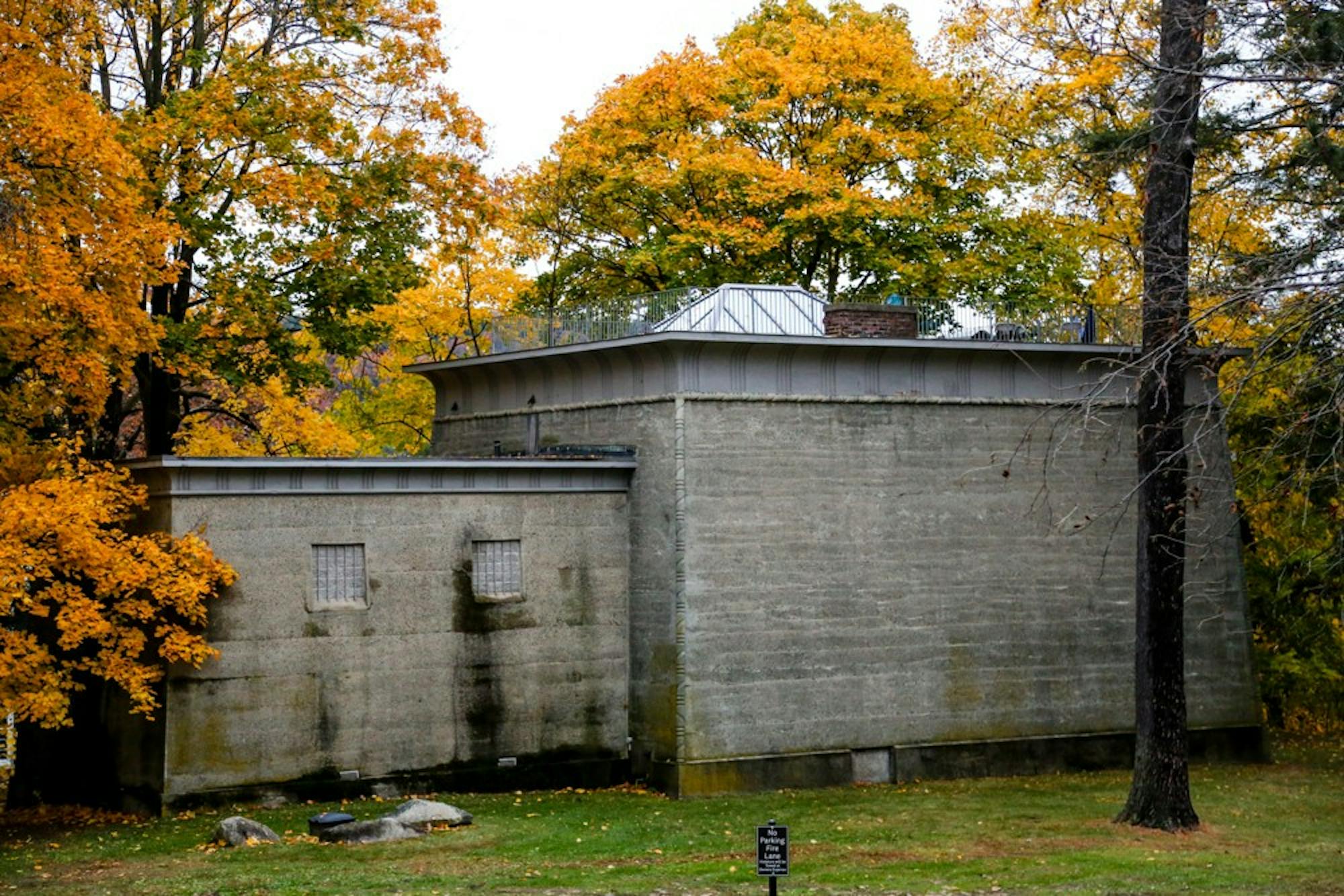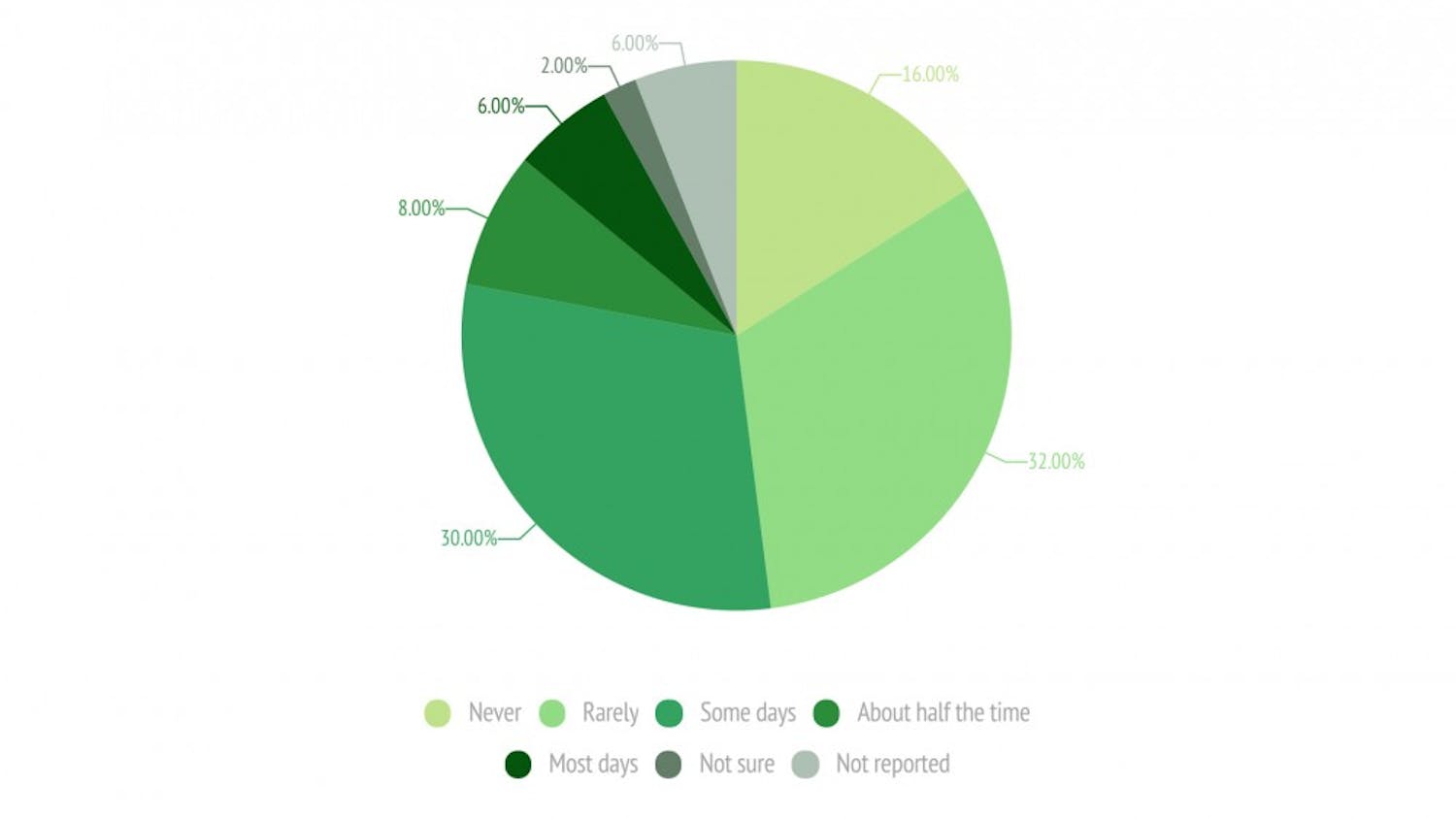Each year during the winter and spring terms, some members of the junior class are tapped by Dartmouth’s senior societies — groups that nearly all remain secret until most members reveal themselves at graduation. Tapping dates have been set for Feb. 11 to Feb. 15 for the winter term and April 7 to 11 in the spring, according to Office of Greek Life director Brian Joyce. However, the tapping dates set by the Office of Greek Life can be complicated by the operations of unrecognized senior societies at the College.
Dartmouth has 14 recognized senior societies — Abaris, Andromeda, Atlas, Casque and Gauntlet, Chimera, Cobra, Dragon, Fire and Skoal, Griffin, Olympus, Order of the Sirens, Phoenix, Pyxis and Sphinx. The exact number of unrecognized societies is unknown, although the president of one recognized society told The Dartmouth she knows of fewer than five unrecognized societies.
According to the College’s website, approximately 31 percent of seniors become members of senior societies, each of which is “unique in character and composition.” Members of secret societies usually do not reveal themselves until the end of their senior year, either in the Aegis yearbook or by carrying a cane at graduation that signifies a specific organization.
For recognized societies, the tapping process occurs during an officially designated tapping week that occurs during both the winter and spring terms. Before this period, societies send lists of all of their potential ‘tappees’ to the Office of Greek Life, which then responds to the societies by designating tappees as “single-tap,” meaning that the person is only being recruited by one society, or “multi-tap,” meaning that the person is wanted by two or more societies. Societies then decide internally which prospective members to tap. Societies are only allowed to reach out to tappees during the tapping period and must confirm members by the end of this period. This process occurs during both the winter and spring terms, with the list of members sent to the Office of Greek Life in the winter applying to both terms of tapping.
“The Office of Greek Life works closely with Dartmouth’s recognized senior societies to uphold the values and standards set by our community,” Joyce wrote in an email statement. “This partnership is important, and we encourage all students to affiliate with recognized organizations to bolster the student experience.”
Because unrecognized societies are mostly unregulated by the College, they largely tap outside of the official deadlines, which can create logistical problems for both the College and other societies.
According to the president of a recognized society who spoke with The Dartmouth on the condition of anonymity, when unrecognized societies tap outside of the official dates, both societies and tappees can suffer the consequences.
“Someone could get tapped by an unrecognized society either earlier or later than the formal tapping week, and it could impact the people on the lists of all the recognized societies because [the recognized societies] are unaware if someone has already been previously tapped,” she said. “It also impacts the tappees, because if someone is tapped by an unrecognized society earlier than they would be tapped by a recognized society and they accept their tap, they wouldn’t even have a chance to decide which one they want to be in. It gives them less flexibility, less awareness and less transparency throughout the process.”
The society president said that one way to improve the tapping process would be to implement a formalized method for negotiations between societies after each organization learns which prospective members on their lists are single- and multi-taps. She said that this process could prevent situations in which confusion over which society is tapping certain tappees results in those tappees accidentally getting passed over, which has happened in the past.
“Some people have been listed as multi-tap, and then one society says, ‘Oh, they’re going to be tapped by society X,’ when society X says, ‘They’re going to be tapped by society Y’ — and then neither one taps them and they just don’t end up being tapped at all,” she explained.
However, the society president said she believes that all societies, recognized or not, serve an important purpose in getting Dartmouth students to engage with different members of the campus community.
“Each society brings together a complex and dynamic mix of people from a variety of areas on campus,” she said. “I think that there should be more societies in general … I wish that people didn’t feel pressure to act a certain way to get into a society, but also that there were more societies so that more people could participate in the process, because I’ve found it to be really fun and rewarding.”

Lauren ('23) is news executive editor for The Dartmouth. She is from Bethesda, Maryland, and plans to major in government and minor in public policy.




